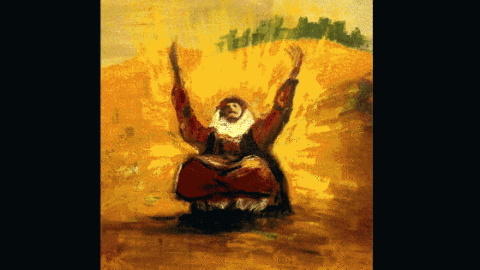The town of Kobani, which is now occupied by Daesh (also known as Islamic State, or IS), has become a contested matter between the Arab and Kurdish populations. Accusations have been exchanged as the criminal group takes over the Kurdish town, after occupying Raqqa and other Syrian areas.
The controversy starts with the name itself. While in Arabic the town is referred to as “Ayn al-Arab” (the spring of Arabs), Kobani is the town’s Kurdish name, which some Arab nationalists refuse to use.
The matter transcends the linguistic aspect. The conquest of language is at the core of the battle for historic memory in Syria, which was stolen by decades of dictatorship. Today, Kurds aim to reverse the process of Arabization of all villages and Kurdish cities, which started with the union of Egypt and Syria in the 1950s and increased after the Baath Party came to power in 1963. In the same way, Syrians as a whole want to restore their memory, stolen by decades of the Baath party renaming public spaces and buildings.

“As a non-Kurd, and a non-Arab nationalist, I could not care less about the controversy around the name”, poet Khawla Dunia said. “What matters is that we lost the town, Kobani or Ayn al-Arab. Neither the Kurdish nor the Arab chauvinism won, and neither will ease the scorched hearts of Syrians.”
The Kurds’ struggle with Daesh has ignited solidarity throughout the region, with many internet users commenting on the courage of the women of Kobani, portrayed as a symbol of resistance against tyranny. “If (Federico García) Lorca was among us today, he would write a play entitled “The Women of Kobani”, writer Nizar Nayouf said. “If I were a man, I would be head over heels for any Kobani woman”, artist Kifah Ali Deeb added.
However, many have pointed at the double standards regarding international attention and solidarity, as daily Syrian massacres continue to go unnoticed.
“I stand in solidarity with Kobani, but it is not the first besieged city in Syria”, artist Tammam Azzam highlighted. “Nor are the courageous Kurdish women fighters the first to be at the forefront of the struggle against tyranny in Syria. Courageous women from Daraa, Idlib, Homs, and Aleppo were, but they received no media attention.”
Azzam’s statement is representative of a widespread frustration with increasingly selective coverage of Syria. “Throughout the country, children continue to be killed by barrel bombs thrown by the regime and in massacres perpetrated by Daesh, which ignite no international reaction”, he added. “Everyone deserves the rights we demonstrated for, and solidarity has to be inclusive of all.”
This double standard is highlighted by many Syrians worldwide. “Arab solidarity with Kobani is inspiring”, writer Dellair Youssef said. “But it is less inspiring to see that many stand in solidarity because the town is fighting Daesh, while they forget the areas that are fighting Assad.”
The following comment by writer Daraa Abdallah may be the best summary of the tragic turn of events represented by the loss of Kobani:
“The tragedy of Kobani is yet another episode of the tragedy of both the Kurdish people, and the Syrian people as a whole.”



